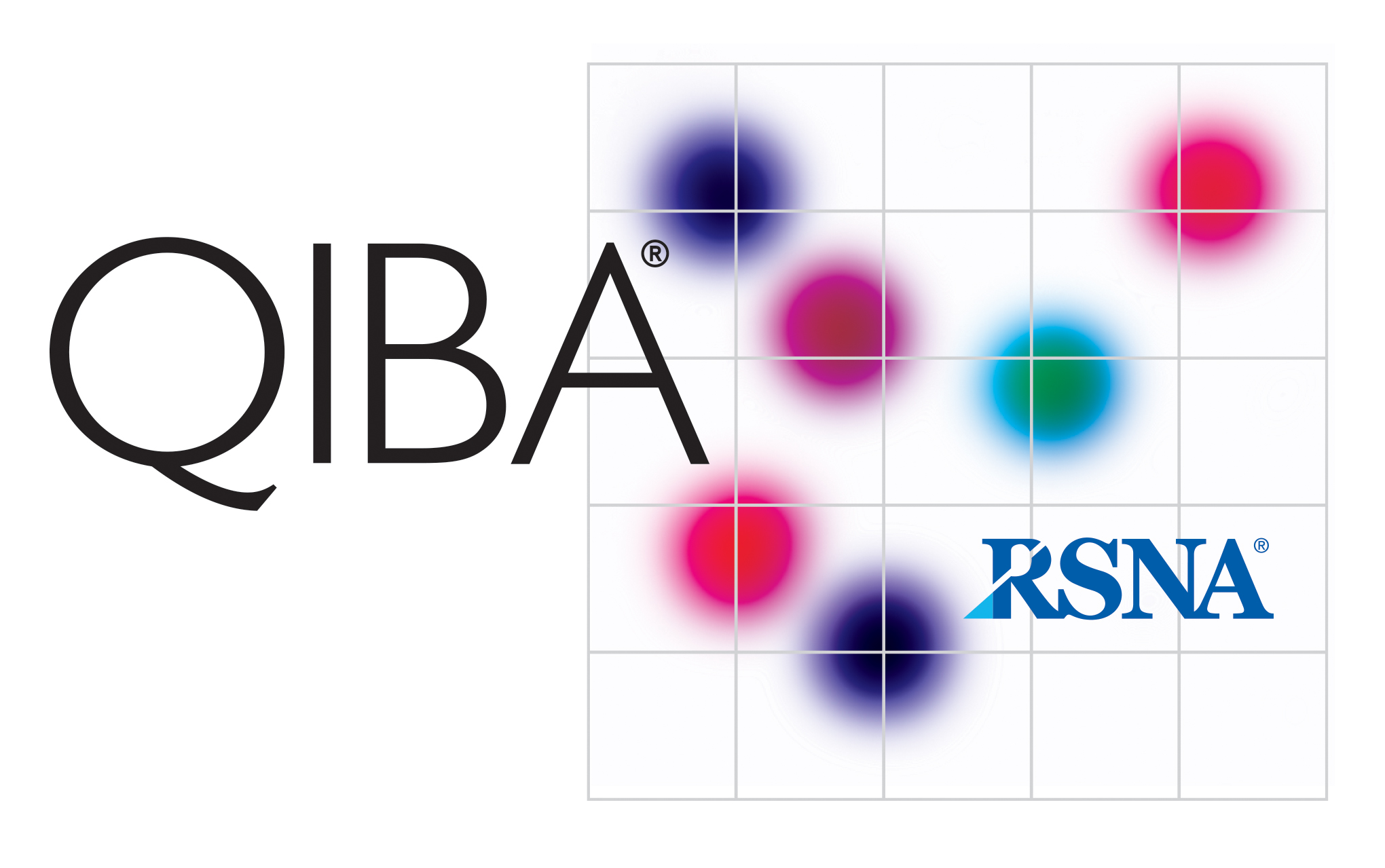Difference between revisions of "Atherosclerosis Biomarkers by CTA, Clinically Feasible Profile"
(Created page with "right|frameless|link=https://qibawiki.rsna.org/index.php/File:QIBA_Initials_FIN.JPG ==='''<big>Media:Atherosclerosis Biomarkers Profile 2023Ma...") |
|||
| (3 intermediate revisions by the same user not shown) | |||
| Line 2: | Line 2: | ||
==='''<big>[[Media:Atherosclerosis Biomarkers Profile 2023Mar28.pdf|Document (PDF)]]</big>'''=== | ==='''<big>[[Media:Atherosclerosis Biomarkers Profile 2023Mar28.pdf|Document (PDF)]]</big>'''=== | ||
===<u>Publication Details</u>=== | ===<u>Publication Details</u>=== | ||
| − | Author: QIBA CTA Biomarker Committee | + | Author: QIBA Computed Tomography Angiography (CTA) Biomarker Committee |
| − | Version: Stage 3: Clinically Feasible | + | Version: Stage 3: Clinically Feasible |
| − | DOI: | + | DOI: 10.1148/QIBA/20230328 |
Publication date: 2023 March 28 | Publication date: 2023 March 28 | ||
| + | |||
===<u>Executive Summary</u>=== | ===<u>Executive Summary</u>=== | ||
The clinical application of Computed Tomography Angiography (CTA) is widely available as a technique to optimize the therapeutic approach to treating vascular disease. Evaluation of atherosclerotic arterial plaque characteristics is currently based on qualitative biomarkers. However, the reproducibility of such findings has historically been limited even among experts. | The clinical application of Computed Tomography Angiography (CTA) is widely available as a technique to optimize the therapeutic approach to treating vascular disease. Evaluation of atherosclerotic arterial plaque characteristics is currently based on qualitative biomarkers. However, the reproducibility of such findings has historically been limited even among experts. | ||
| Line 16: | Line 17: | ||
The goal of a Quantitative Imaging Biomarker Alliance (QIBA) Profile is to provide an implementation guide to generate a biomarker with an effective level of performance, mostly by reducing variability and bias in the measurement. The performance claims represent expert consensus and will be empirically demonstrated at a subsequent stage. Users of this Profile are encouraged to refer to the following site to understand the document’s context: <nowiki>http://qibawiki.rsna.org/index.php/QIBA_Profile_Stages</nowiki>. All statistical performance assessments are stated in carefully considered metrics and according to strict definitions as given in (3-8), which also includes detailed, peer-reviewed rationale on the importance of adhering to such standards. | The goal of a Quantitative Imaging Biomarker Alliance (QIBA) Profile is to provide an implementation guide to generate a biomarker with an effective level of performance, mostly by reducing variability and bias in the measurement. The performance claims represent expert consensus and will be empirically demonstrated at a subsequent stage. Users of this Profile are encouraged to refer to the following site to understand the document’s context: <nowiki>http://qibawiki.rsna.org/index.php/QIBA_Profile_Stages</nowiki>. All statistical performance assessments are stated in carefully considered metrics and according to strict definitions as given in (3-8), which also includes detailed, peer-reviewed rationale on the importance of adhering to such standards. | ||
| − | The expected performance is expressed as Claims(Section 1.2). To achieve those claims, Actors(Scanners, Reconstruction Software, Image Analysis Tools, Imaging Physicians, Physicists, and Technologists) must meet the Checklist Requirements (Section 3) covering Subject Handling, Image Data Acquisition, Image Data Reconstruction, Image QA, and Image Analysis. This Profile is at the Clinically Feasible stage (qibawiki.rsna.org/index.php/QIBA_Profile_Stages) which indicate that multiple sites have performed the | + | The expected performance is expressed as Claims (Section 1.2). To achieve those claims, Actors (Scanners, Reconstruction Software, Image Analysis Tools, Imaging Physicians, Physicists, and Technologists) must meet the Checklist Requirements (Section 3) covering Subject Handling, Image Data Acquisition, Image Data Reconstruction, Image QA, and Image Analysis. This Profile is at the Clinically Feasible stage (qibawiki.rsna.org/index.php/QIBA_Profile_Stages) which indicate that multiple sites have performed the Profile and found it to be practical and expect it to achieve the claimed performance. QIBA Profiles for other CT, MRI, PET, and Ultrasound biomarkers can be found at qibawiki.rsna.org. |
Latest revision as of 15:30, 29 May 2024
Document (PDF)
Publication Details
Author: QIBA Computed Tomography Angiography (CTA) Biomarker Committee
Version: Stage 3: Clinically Feasible
DOI: 10.1148/QIBA/20230328
Publication date: 2023 March 28
Executive Summary
The clinical application of Computed Tomography Angiography (CTA) is widely available as a technique to optimize the therapeutic approach to treating vascular disease. Evaluation of atherosclerotic arterial plaque characteristics is currently based on qualitative biomarkers. However, the reproducibility of such findings has historically been limited even among experts.
Quantitative imaging biomarkers have been shown to have additive value above traditional qualitative imaging metrics and clinical risk scores regarding patient outcomes. However, many definitions and cut-offs are present in the current literature; therefore, standardization of quantitative evaluation of CTA datasets is needed before becoming a valuable tool in daily clinical practice. To establish these biomarkers in clinical practice, techniques are required to standardize quantitative imaging across different manufacturers with cross-calibration. Moreover, the post-processing of atherosclerotic plaque segmentation needs to be optimized and standardized.
The goal of a Quantitative Imaging Biomarker Alliance (QIBA) Profile is to provide an implementation guide to generate a biomarker with an effective level of performance, mostly by reducing variability and bias in the measurement. The performance claims represent expert consensus and will be empirically demonstrated at a subsequent stage. Users of this Profile are encouraged to refer to the following site to understand the document’s context: http://qibawiki.rsna.org/index.php/QIBA_Profile_Stages. All statistical performance assessments are stated in carefully considered metrics and according to strict definitions as given in (3-8), which also includes detailed, peer-reviewed rationale on the importance of adhering to such standards.
The expected performance is expressed as Claims (Section 1.2). To achieve those claims, Actors (Scanners, Reconstruction Software, Image Analysis Tools, Imaging Physicians, Physicists, and Technologists) must meet the Checklist Requirements (Section 3) covering Subject Handling, Image Data Acquisition, Image Data Reconstruction, Image QA, and Image Analysis. This Profile is at the Clinically Feasible stage (qibawiki.rsna.org/index.php/QIBA_Profile_Stages) which indicate that multiple sites have performed the Profile and found it to be practical and expect it to achieve the claimed performance. QIBA Profiles for other CT, MRI, PET, and Ultrasound biomarkers can be found at qibawiki.rsna.org.
